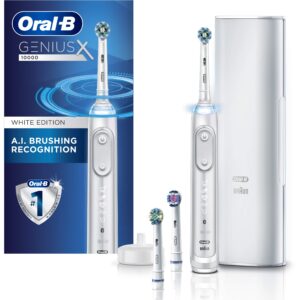THE END IS NEAR
September 23, 2024
September is almost over! It’s crunch time to get everything done that we haven’t gotten done during the rest of the year. For those with remaining dental benefits, it’s also the time of year to consider utilizing those so you don’t lose them.
Unused dental benefits go directly back to the insurance company, which generates hundreds and hundreds of thousands of dollars for the insurance companies each year. Dental insurance companies count on the fact that many people will not claim their $1000 or so in benefits by the end of the calendar year. Those with dental benefits should look for legitimate means to use these benefits before they are lost.
For example, perhaps a crown has been recommended by your dentist, but you have procrastinated about it. It would make sense to consider using those dental benefits before the end of the calendar year. This allows a whole new round of dental benefits to be used for unexpected dental needs the following year, and maximizes the value of the premiums paid.
Remember, insurance companies are in the business to make money. They don’t want you to use your dental benefits. If the balance (co-payment) you will owe for the dental work that needs to be done is too much for you, consider financing options through your dental office. Most dental offices offer interest-free financing to patients for up to 12 months. Financing your balance in this way may make more financial sense than throwing money away to fund the insurance company’s pocketbooks.
Another thing to consider as the end of the year approaches is the use of flex spending accounts. Many employers now offer pre-tax flex spending accounts for healthcare expenses. Often underutilized, these are excellent mechanisms for saving about 20 percent on needed dental care. If you are paying for your dental insurance premiums, it may even make sense to fund an available flex spending account with that premium money instead of, or in conjunction with it.
For instance, if you are anticipating the need for $3000 in dental care, opting to place the $3000 in a flex spending account can save the income tax on those monies and can usually be used as soon as January 1st. If you have money left in a flex spending account, remember to check with your employer to determine if that money needs to be used by the end of the year. You don’t want to lose that money either.
As you begin to make financial decisions for the end of this year and for the upcoming year, consider a discussion with your dental office’s financial person. They are often an untapped wealth of information and can usually thoroughly and knowledgeably discuss your dental financial options with you.
And, don’t wait too long. Dental office schedules get full quickly this time of year with patients trying to use dental insurance benefits and unused flex account money. Maximize your hard-earned dollars.
Dr. St. Clair maintains a private dental practice in Rowley dedicated to health-centered family dentistry. He has a special interest in treating snoring, sleep apnea and TMJ problems. If there are certain topics you would like to see written about or questions you have please email them to him at jpstclair@stclairdmd.com
GO ELECTRIC
September 16, 2024
Like many dental practices today, our office sends an email request for patients to leave comments about their visit to our office. Most comments are positive, for which we are grateful. However, all comments are helpful to the business to understand what patients are thinking. If one person is thinking it, most likely there are others.

Version 1.0.0
We received the following comment on our website from a patient who was in to see one of our hygienists:
“My hygienist is always very pleasant, conversational and professional in her services. However, I can do without the constant sales pitch to buy an electric toothbrush from your office. There is no evidence that an electric is any better than a good, manual 2-minute brush, and I don’t have any arthritis or dexterity issues.”
I really appreciate feedback from patients like this. Your own dental office would too. In my response to the patient, I explained that I didn’t like the fact that the patient had the feeling he was trying to be sold something. For the patient to feel that the only benefit was monetary to our office means the communication was inadequate. Most dental offices are not selling electric toothbrushes to make money.
We keep our preference of electric toothbrushes in stock for convenience and cost savings for the patient. The shared benefit for the dentist and the patient is improved health. We want our patients to have healthier gums and less cavities.
Back in the beginning of my professional career, I was an advocate of the manual toothbrush. I was convinced that anyone could get the same results with a manual toothbrush, compared with any electric/power toothbrush. It wasn’t until I actually tried a power toothbrush, and stuck with it, that I was convinced there was a distinct difference.
It is now common practice for us, and likely most dental practices, to ask patients if they use a manual toothbrush or an electric toothbrush. When we ask this question, we have also found that it is just as important to ask what kind of power toothbrush is used. One that sits in a charger is far more effective than one that you put batteries in, though it does cost more.
There have been numerous studies that have compared the effectiveness of both rotating and sonic power toothbrushes. In one study, 131 individuals were split into two groups – oscillating/rotating vs sonic power brushes. Prior to the study, 63% and 58% were manual toothbrush users, respectively. Each participant brushed twice daily during a four-week period using their assigned powered toothbrush and a standard toothpaste.
Researchers graded effectiveness of their plaque removal using a specific plaque-grading index. While both groups showed significant improvement when compared to manual brushing, the oscillating/rotating brush was better. 97% of the oscillating/rotating group saw a reduction in whole-mouth plaque, compared with 64% of the sonic participants.
“The current study demonstrated superior plaque reductions with an advanced oscillating/rotating power brush compared to a novel sonic brush, corroborating previous studies demonstrating the superiority of oscillating-rotating power brushes relative to sonic brushes,” the researchers concluded.
While using a manual toothbrush can be effective, it is clear based on this study and others, that a good quality power toothbrush is better. It’s time to change if you still use a manual brush.
You can do what you want with a car, but when it comes to a toothbrush, electric wins…hands-down!
Dr. St. Clair maintains a private dental practice in Rowley dedicated to health-centered family dentistry. He has a special interest in treating snoring, sleep apnea and TMJ problems. If there are certain topics you would like to see written about or questions you have please email them to him at jpstclair@stclairdmd.com
The “Ideal” Care-Giver
September 9, 2024
 A few weeks ago, I wrote about some specific differences between dentists and dental practice philosophies. However, what makes for an ideal doctor, dentist, nurse, physical therapist, or any other care-giver? Patients shared their views in a study which appeared in an issue of Mayo Clinic Proceedings. It’s based on nearly 200 patients treated at the Mayo Clinic in Arizona and Minnesota.
A few weeks ago, I wrote about some specific differences between dentists and dental practice philosophies. However, what makes for an ideal doctor, dentist, nurse, physical therapist, or any other care-giver? Patients shared their views in a study which appeared in an issue of Mayo Clinic Proceedings. It’s based on nearly 200 patients treated at the Mayo Clinic in Arizona and Minnesota.
In phone interviews with people who had no professional ties with the Mayo Clinic, the patients described their best and worst experiences with their Mayo Clinic doctors, with confidentiality guaranteed. The doctors seen by the patients came from 14 medical specialties.
Here are the seven traits listed by the patients, along with the patients’ definitions of those traits:
- Confident: “The doctor’s confidence gives me confidence.”
- Empathetic: “The doctor tries to understand what I am feeling and experiencing, physically and emotionally, and communicates that understanding to me.”
- Humane: “The doctor is caring, compassionate, and kind.”
- Personal: “The doctor is interested in me more than just as a patient, interacts with me, and remembers me as an individual.”
- Forthright: “The doctor tells me what I need to know in plain language and in a forthright manner.”
- Respectful: “The doctor takes my input seriously and works with me.”
- Thorough: “The doctor is conscientious and persistent.”
That list isn’t in any particular order. The researchers didn’t check whether confidence was more important to patients than respectful treatment, for instance. The Mayo Foundation funded the study.
The traits covered doctor’s behavior, not technical know-how. That finding “does not suggest that technical skills are less important than personal skills, but it does suggest that the former are more difficult for patients to judge,” the researchers write. They add that patients may tend to assume that doctors are competent unless they see signs of incompetence, the researchers add.
One patient put it this way in the study: “We want doctors who can empathize and understand our needs as a whole person. We want to feel that our doctors have incredible knowledge in their field. But every doctor needs to know how to apply their knowledge with wisdom and relate to us as plain folks who are capable of understanding our disease and treatment.”
The opposite of those seven traits would be: timid, uncaring, misleading, cold, callous, disrespectful, and hurried. Can healthcare ever be high-quality if the patient-doctor interaction is any of these?
I recently spent a few days in one of Boston’s major hospitals. This was my first experience as a patient in a hospital. While I was nervous going in, but my experience was an A+ in all areas. I felt very cared for.
I hear many touching stories from patients who have had such positive experiences with doctors and nurses during tough medical situations. People who are cared for in this way receive much more than physical wellness.
Dr. St. Clair maintains a private dental practice in Rowley dedicated to health-centered family dentistry. He has a special interest in treating snoring, sleep apnea and TMJ problems. If there are certain topics you would like to see written about or questions you have please email them to him at jpstclair@stclairdmd.com
BACK-TO-SCHOOL QUIZ
September 3, 2024
 Question #1: The risk factors for gum disease are the same as for heart disease (genetics, smoking, weight, lack of exercise, and high cholesterol).
Question #1: The risk factors for gum disease are the same as for heart disease (genetics, smoking, weight, lack of exercise, and high cholesterol).
Answer: False. Genetics and smoking tobacco are major risk factors, but stress, medications, lack of proper hygiene, and systemic problems, such as diabetes, are additional risk factors. Just like heart disease, management of gum disease requires strict maintenance visits to monitor and control the disease. Taking care of your body includes taking care of your oral health.
Question #2: Less than one in ten people will experience a fractured tooth.
Answer: False. About one in four sustain a fracture to a front tooth by the age of 18. Front teeth tend to get in the way when falling or with flying/swinging objects. Back teeth with older amalgam (silver) fillings, or with larger fillings in general, are susceptible to breaking. If you clench or grind, you are at much higher risk for fracture of back teeth and irreversible wear of front and back teeth. This is all preventable.
Question #3: Precancerous lesions are common in the mouths of smokers.
Answer: True. The red and white patches precede malignancy and require biopsy. Precancerous oral lesions are also common in heavier drinkers. Again, regular maintenance visits are essential for monitoring and appropriate referrals to be given for such lesions.
Question #4: Your toothbrush should be changed every six months.
Answer: False. Your toothbrush should be changed every 8-12 weeks. Bacteria accumulation and effectiveness of the bristles make it necessary to change it this often. It should also be replaced after you have been sick. This goes for manual as well as power toothbrush users. Even is the brush head looks ok, change regularly.
Question #5: The average person will lose less than six teeth by age 72.
Answer: True. According to the Academy of General Dentistry, 5.4 teeth are lost by age 72. This number has declined over the years but there is still room for improvement. Remember, studies show that the quality of life decreases with each tooth lost. Tooth loss is preventable in many situations. Again, regular professional care is essential for maintaining good health.
Question #6: Regular use of dental floss may help you live as many as six years longer.
Answer: True. While just 10% of households floss regularly, researchers at SUNY-Buffalo estimate longer lives for flossers. A healthier mouth means less chronic inflammation and a decreased chance of heart disease.
Extra Credit: (True or False) Ancient teeth, with small perfectly round holes in the biting surface may be the earliest archaeological evidence of prehistoric dentistry. Researchers believe a stone bit was used to drill through teeth, as holes of the exact same diameter were found in beads made for jewelry 8-9000 years ago. Scientists speculate that the holes had been filled with plant matter to treat tooth decay.
Answer: True. We’re lucky to live in the 21st Century.
Dr. St. Clair maintains a private dental practice in Rowley dedicated to health-centered family dentistry. He has a special interest in treating snoring, sleep apnea and TMJ problems. If there are certain topics you would like to see written about or questions you have please email them to him at jpstclair@stclairdmd.com







